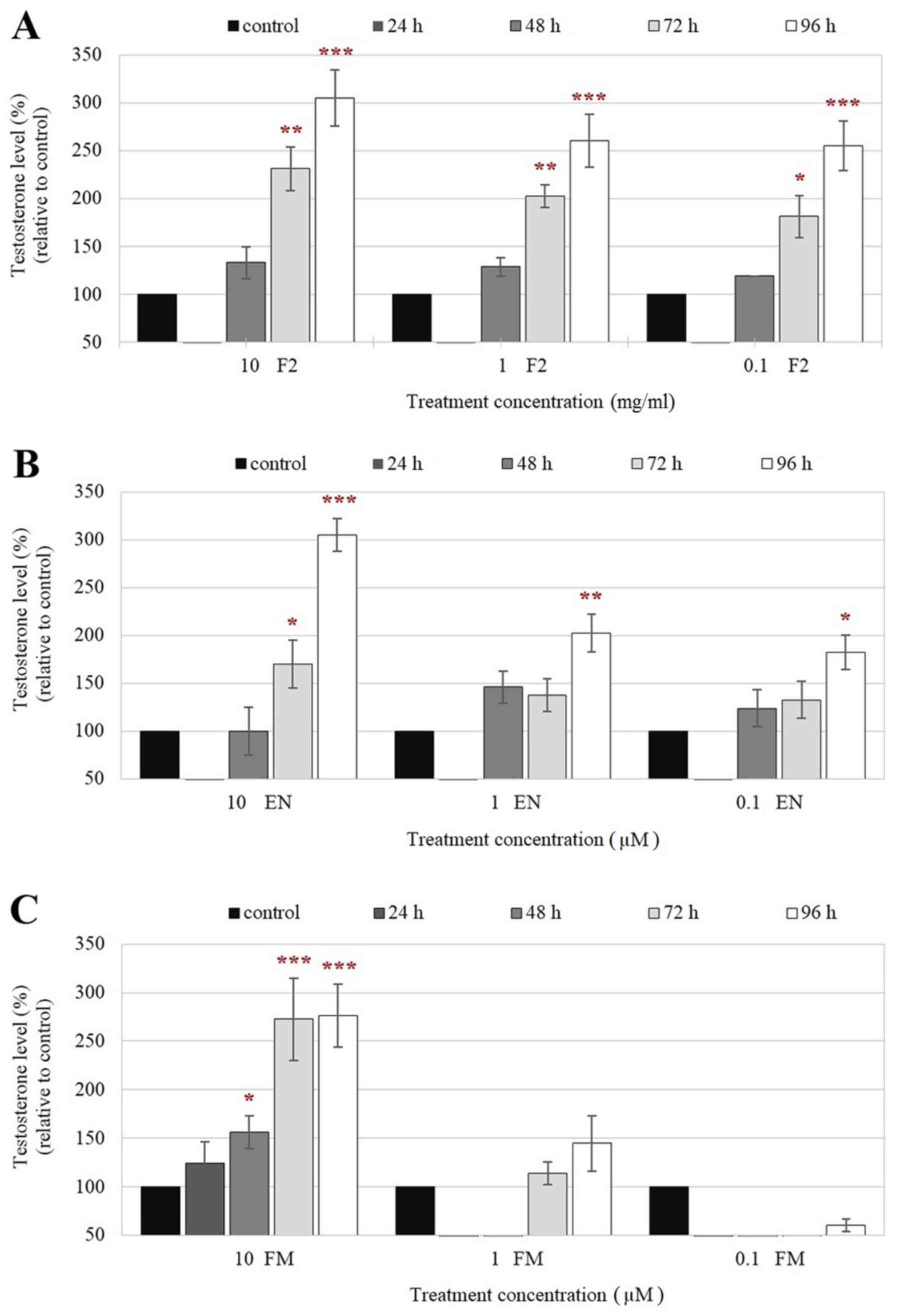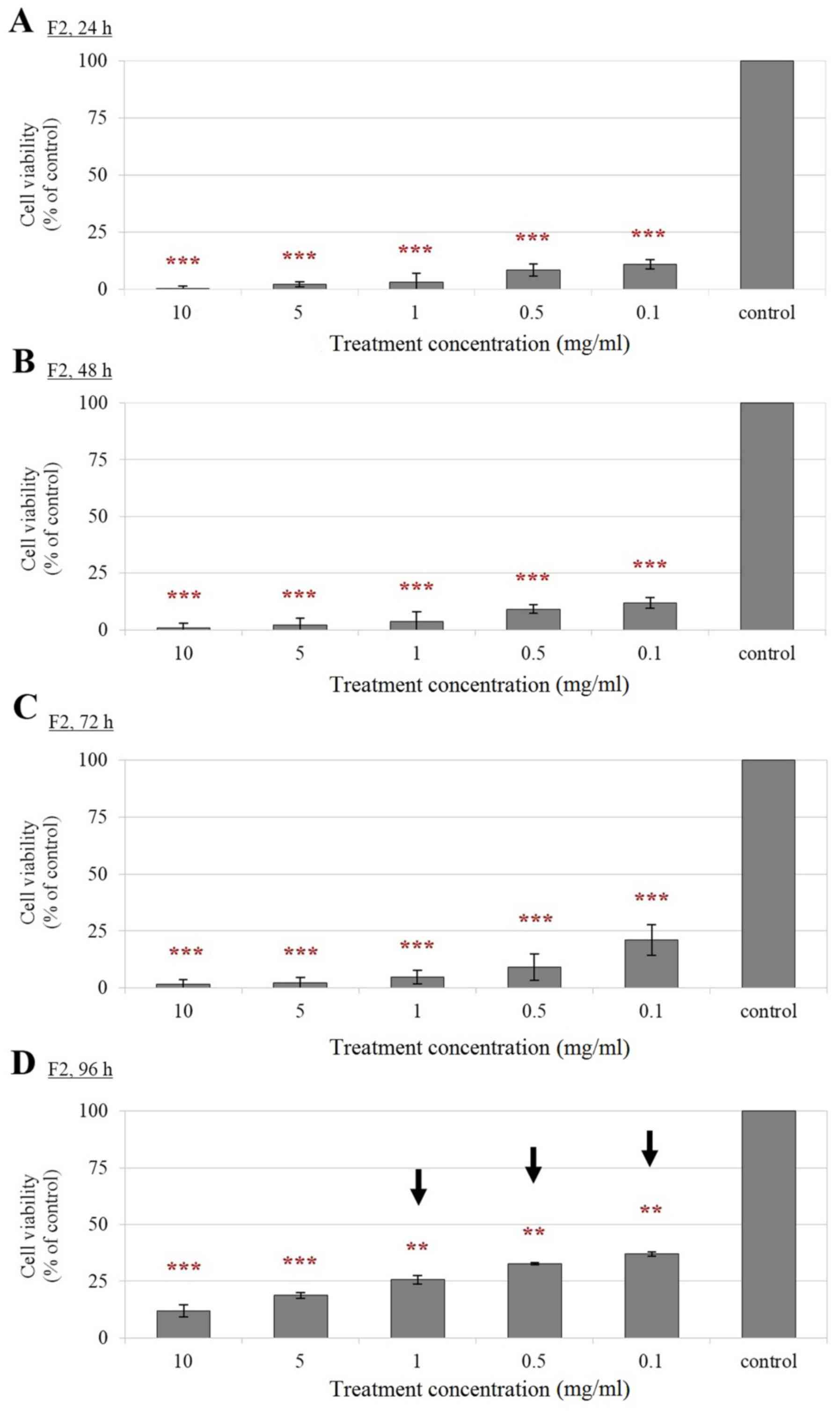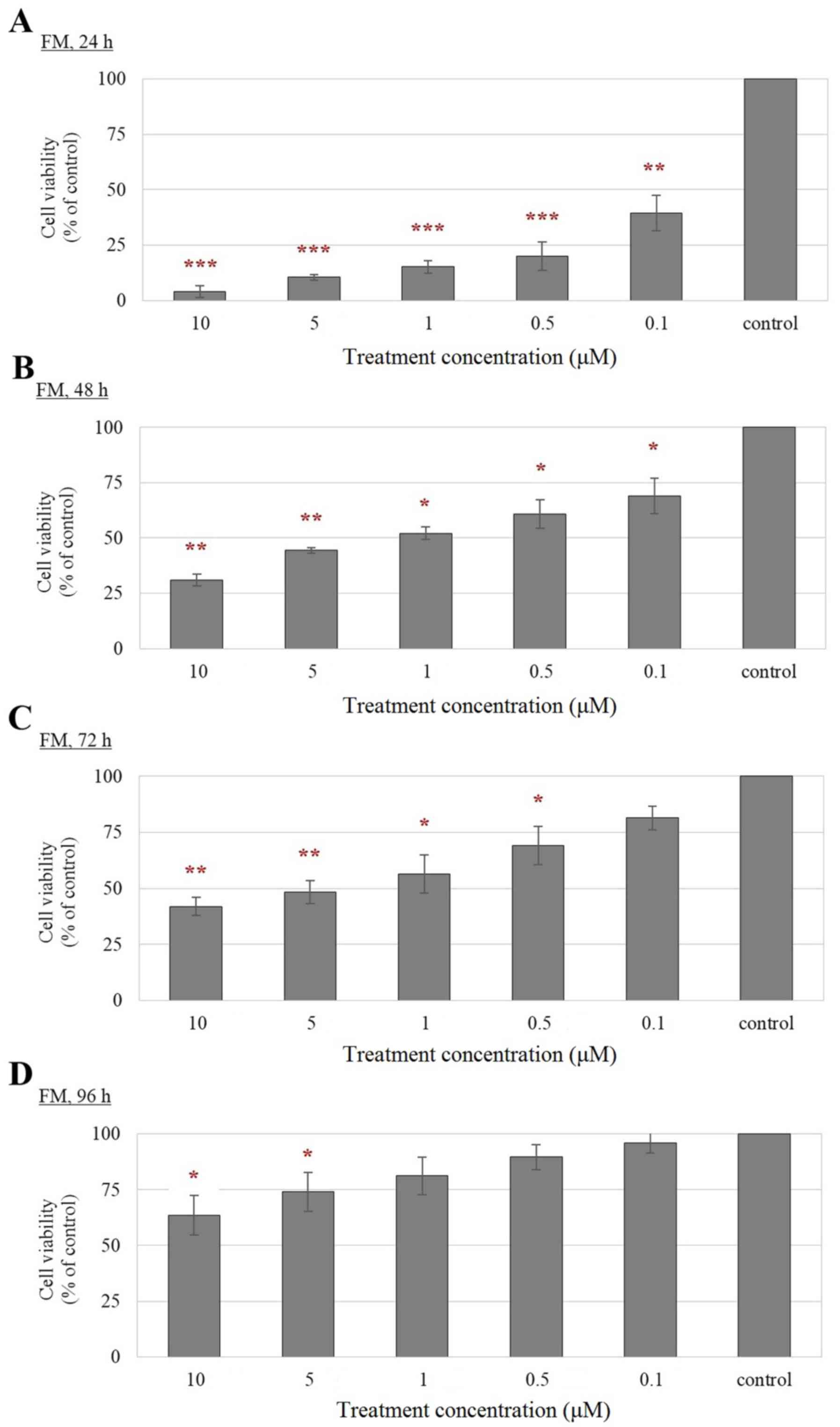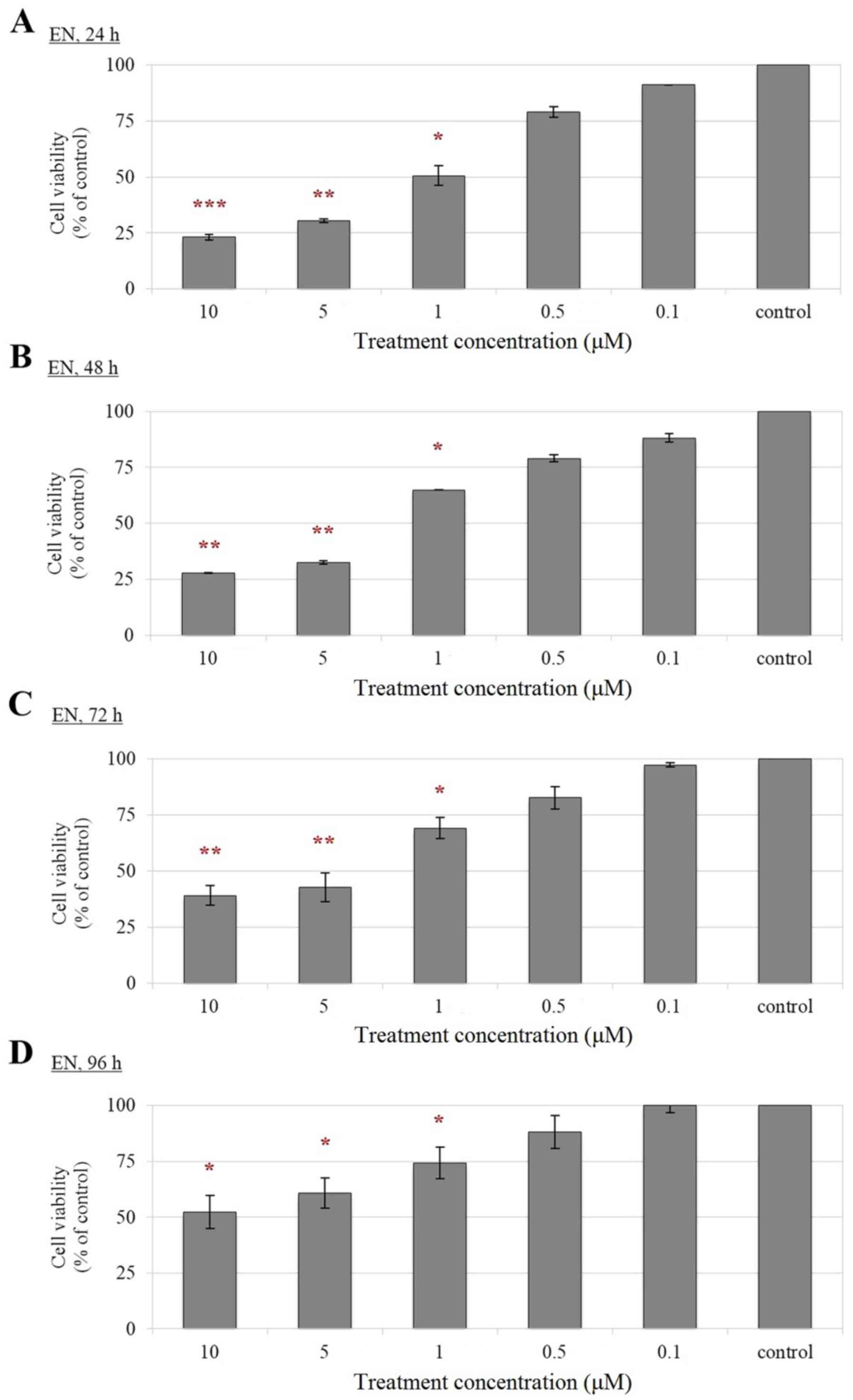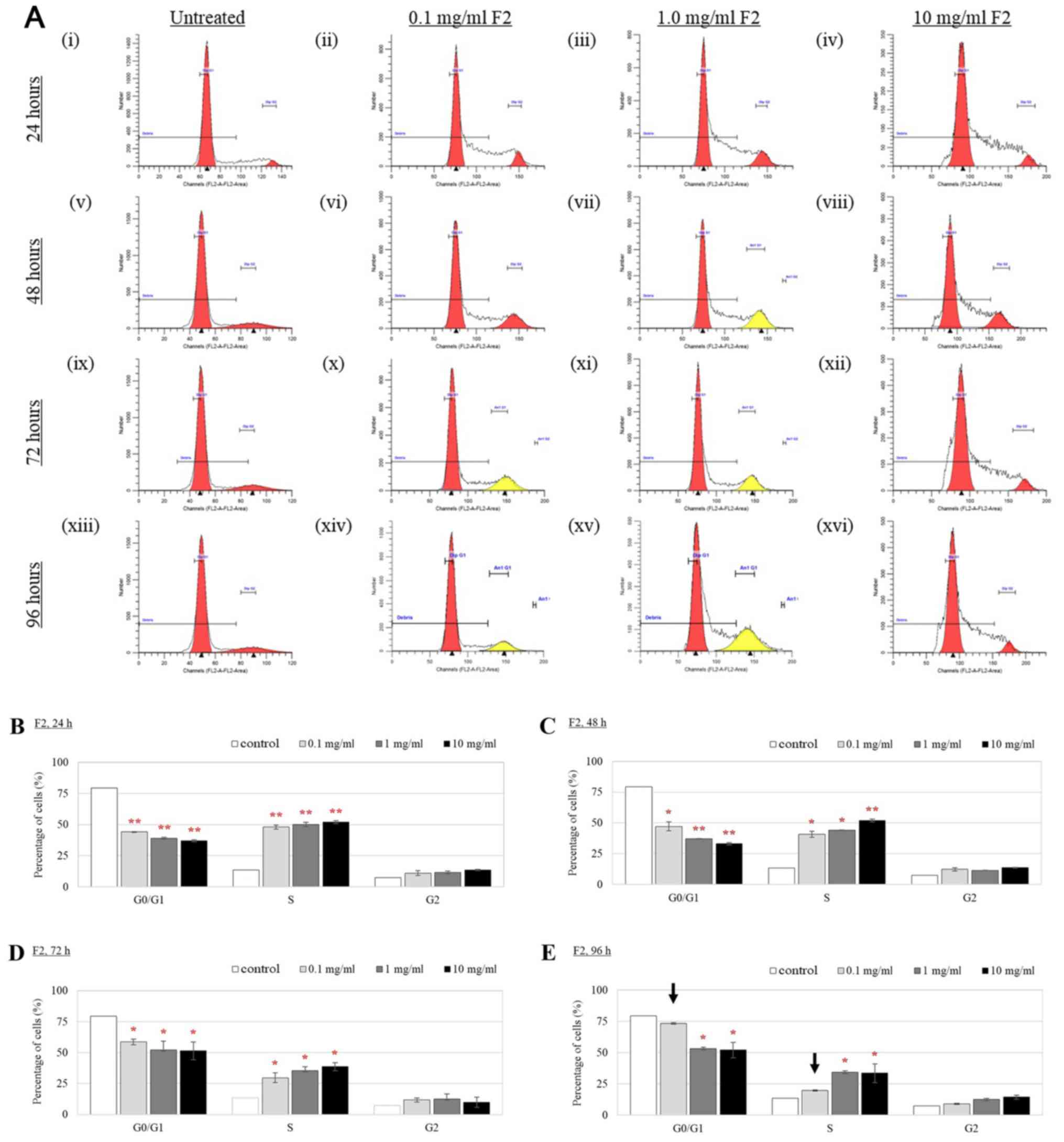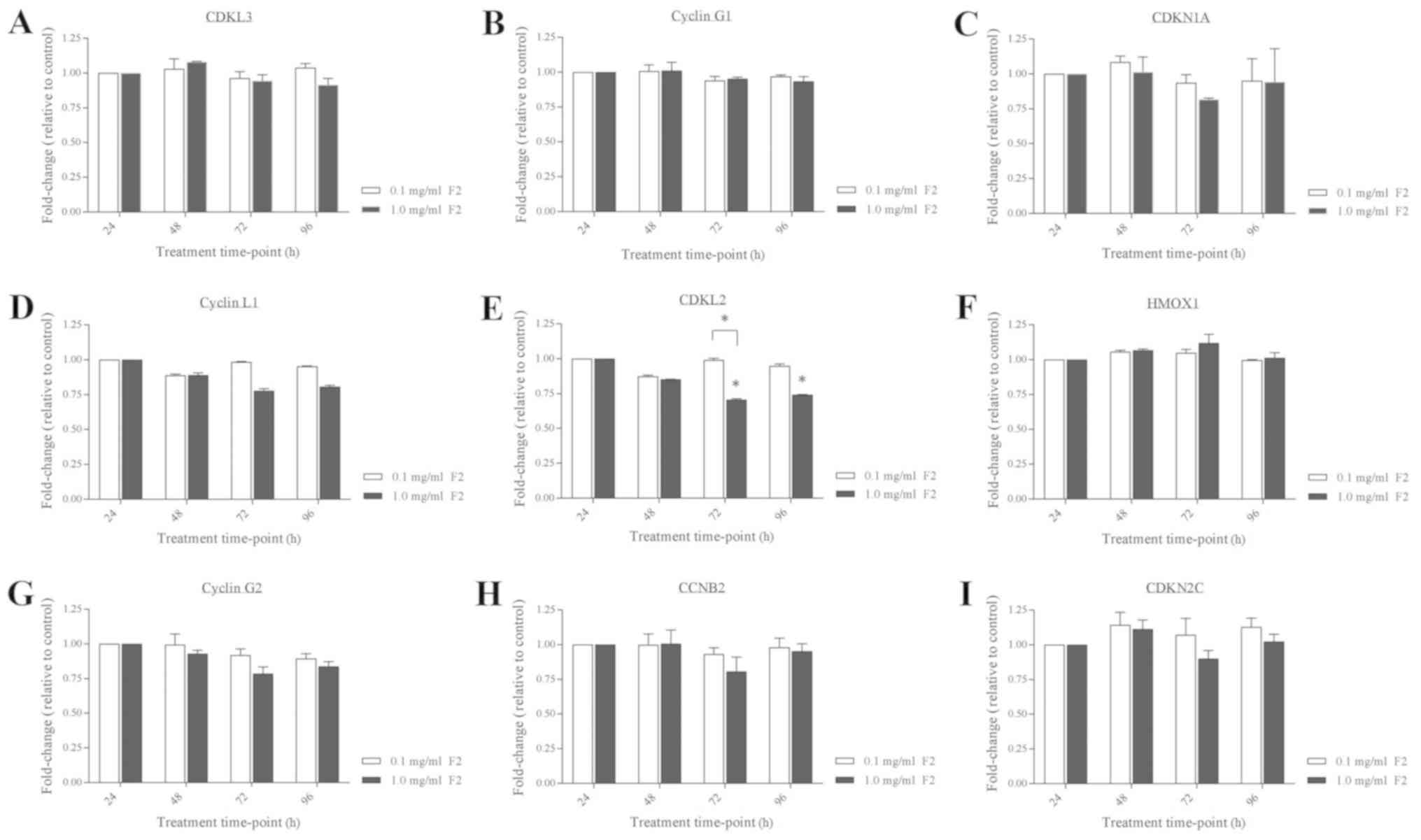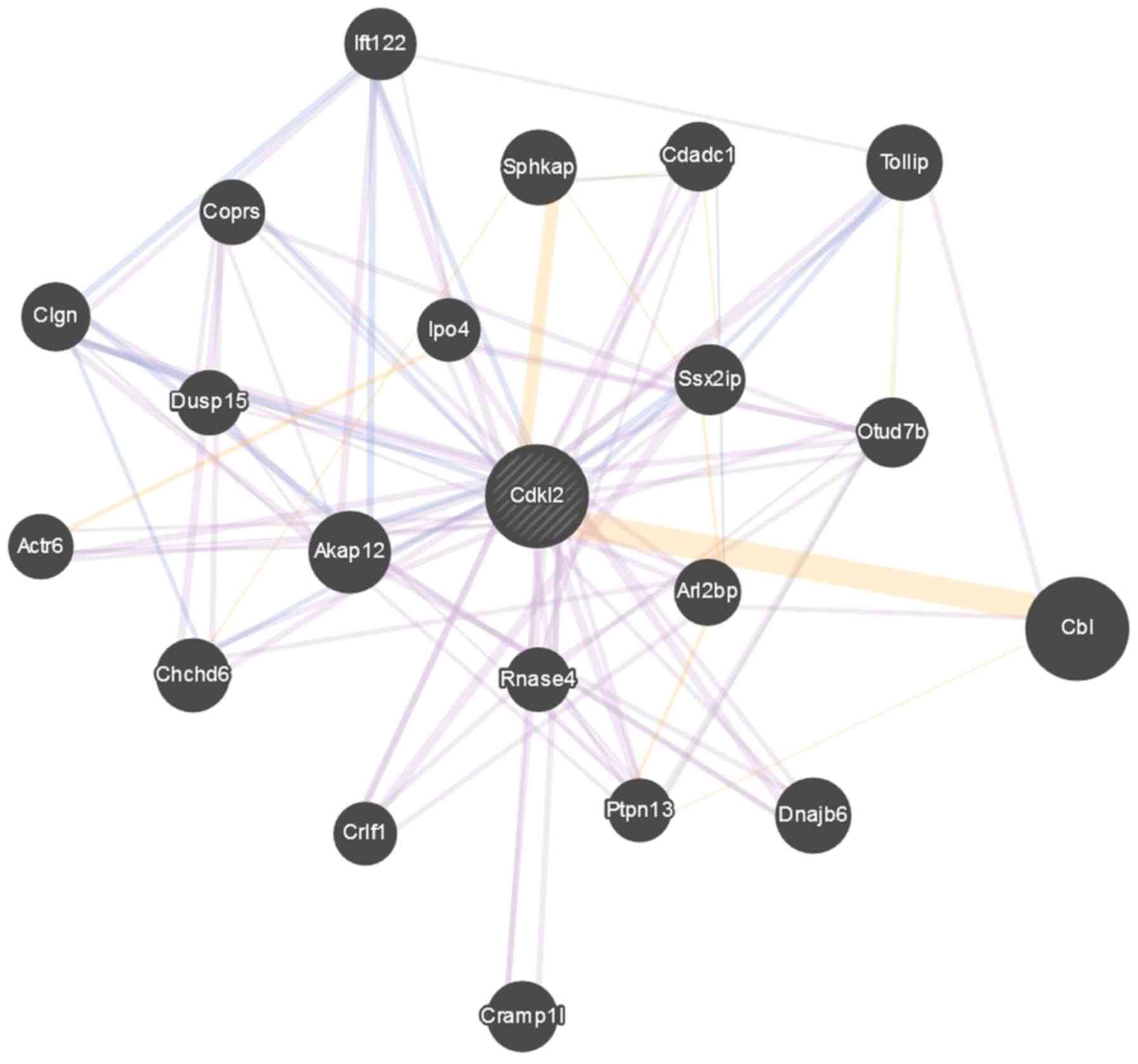|
1
|
Ekor M: The growing use of herbal
medicines: Issues relating to adverse reactions and challenges in
monitoring safety. Front Pharmacol. 4:1772014. View Article : Google Scholar : PubMed/NCBI
|
|
2
|
Nasri H, Baradaran A, Shirzad H and
Rafieian-Kopaei M: New concepts in nutraceuticals as alternative
for pharmaceuticals. Int J Prev Med. 5:1487–1499. 2014.PubMed/NCBI
|
|
3
|
Rehman SU, Choe K and Yoo HH: Review on a
traditional herbal medicine, Eurycoma longifolia Jack
(Tongkat Ali): Its traditional uses, chemistry, evidence-based
pharmacology and toxicology. Molecules. 21:3312016. View Article : Google Scholar : PubMed/NCBI
|
|
4
|
Yuan H, Ma Q, Ye L and Piao G: The
traditional medicine and modern medicine from natural products.
Molecules. 21:5592016. View Article : Google Scholar
|
|
5
|
Chan KL, Choo CY, Morita H and Itokawa H:
High performance liquid chromatography in phytochemical analysis of
Eurycoma longifolia. Planta Med. 64:741–745. 1998.
View Article : Google Scholar : PubMed/NCBI
|
|
6
|
Chan KL, Low BS, Teh CH and Das PK: The
effect of Eurycoma longifolia on sperm quality of male rats.
Nat Prod Commun. 4:1331–1336. 2009.PubMed/NCBI
|
|
7
|
Meng D and Li X, Han L, Zhang L, An W and
Li X: Four new quassinoids from the roots Eurycoma
longifolia jack. Fitoterapia. 92:105–110. 2014. View Article : Google Scholar : PubMed/NCBI
|
|
8
|
Low BS, Das PK and Chan KL: Standardized
quassinoid-rich Eurycoma longifolia extract improved
spermatogenesis and fertility in male rats via the
hypothalamic-pituitary-gonadal axis. J Ethnopharmacol. 145:706–714.
2013. View Article : Google Scholar : PubMed/NCBI
|
|
9
|
Mohamed AN, Vejayan J and Yusoff MM:
Review on Eurycoma longifolia pharmacological and
phytochemical properties. J Appl Sci. 15:831–844. 2015. View Article : Google Scholar
|
|
10
|
Farouk AE and Benafri A: Antibacterial
activity of Eurycoma longifolia Jack. A Malaysian medicinal
plant. Saudi Med J. 28:1422–1424. 2007.PubMed/NCBI
|
|
11
|
Nurhanan MY, Azimahtol Hawariah LP, Mohd
Ilham A and Mohd Shukri MA: Cytotoxic effects of the root extracts
of Eurycoma longifolia Jack. Phytother Res. 19:994–996.
2005. View Article : Google Scholar : PubMed/NCBI
|
|
12
|
Wernsdorfer WH, Ismail S, Chan KL,
Congpuong K and Wernsdorfer G: Activity of Eurycoma
longifolia root extract against plasmodium falciparum in vitro.
Wien Klin Wochenschr. 121 (Suppl 3):S23–S26. 2009. View Article : Google Scholar
|
|
13
|
Chuen CS and Azimahtol HLP: Eurycomanone
exerts antiproliferative activity via apoptosis upon MCF-7 cells.
Proceedings of the 4th Annual Seminar of National Science
Fellowship. BIO04:2004.
|
|
14
|
Kuo PC, Damu AG, Lee KH and Wu TS:
Cytotoxic and antimalarial constituents from the roots of
Eurycoma longifolia. Bioorg Med Chem. 12:537–544. 2004.
View Article : Google Scholar : PubMed/NCBI
|
|
15
|
Noor MM, Mohd Nor AHS and Hassan LC: The
effect of Eurycoma longifolia Jack (Tongkat Ali) on sexual
behaviour and sperm quality in rats. Malaysia J Pharm Sci. 2:53–60.
2004.
|
|
16
|
Park S, Nhiem NX, Kiem PV, Minh CV, Tai
BH, Kim N, Yoo HH, Song JH, Ko HJ and Kim SH: Five new quassinoids
and cytotoxic constituents from the roots of Eurycoma
longifolia. Bioorg Med Chem Lett. 24:3835–3840. 2014.
View Article : Google Scholar : PubMed/NCBI
|
|
17
|
Ang HH, Ikeda S and Gan EK: Evaluation of
the potency activity of aphrodisiac in Eurycoma longifolia
jack. Phytother Res. 15:435–436. 2001. View Article : Google Scholar : PubMed/NCBI
|
|
18
|
Shuid AN, El-arabi E, Effendy NM, Razak
HS, Muhammad N, Mohamed N and Soelaiman IN: Eurycoma
longifolia upregulates osteoprotegerin gene expression in
androgen-deficient osteoporosis rat model. BMC Complement Altern
Med. 12:1522012. View Article : Google Scholar : PubMed/NCBI
|
|
19
|
Zhari I, Norhayati I and Jaafar L:
Malaysian herbal monograph. Malaysian Monograph Committee. 1:67–70.
1999.
|
|
20
|
Bhat R and Karim AA: Tongkat ali
(Eurycoma longifolia Jack): A review on its ethnobotany and
pharmacological importance. Fitoterapia. 81:669–679. 2010.
View Article : Google Scholar : PubMed/NCBI
|
|
21
|
Foley GL: Overview of male reproductive
pathology. Toxicol Pathol. 29:49–63. 2001. View Article : Google Scholar : PubMed/NCBI
|
|
22
|
Erasmus N, Solomon MC, Fortuin KA and
Henkel RR: Effect of Eurycoma longifolia Jack (Tongkat Ali)
extract on human spermatozoa in vitro. Andrologia. 44:308–314.
2012. View Article : Google Scholar : PubMed/NCBI
|
|
23
|
Isidori AM, Buvat J, Corona G, Goldstein
I, Jannini EA, Lenzi A, Porst H, Salonia A, Traish AM and Maggi M:
A critical analysis of the role of testosterone in erectile
function: From pathophysiology to treatment-a systematic review.
Eur Urol. 65:99–112. 2014. View Article : Google Scholar : PubMed/NCBI
|
|
24
|
Talbott SM, Talbott JA, George A and Pugh
M: Effect of Tongkat Ali on stress hormones and psychological mood
state in moderately stressed subjects. J Int Soc Sports Nutr.
10:282013. View Article : Google Scholar : PubMed/NCBI
|
|
25
|
Miyake K, Tezuka Y, Awale S, Li F and
Kadota S: Quassinoids from Eurycoma longifolia. J Nat Prod.
72:2135–2140. 2009. View Article : Google Scholar : PubMed/NCBI
|
|
26
|
Low BS, Choi SB, Abdul Wahab H, Das PK and
Chan KL: Eurycomanone, the major quassinoid in Eurycoma
longifolia root extract increases spermatogenesis by inhibiting
the activity of phosphodiesterase and aromatase in steroidogenesis.
J Ethnopharmacol. 149:201–207. 2013. View Article : Google Scholar : PubMed/NCBI
|
|
27
|
Solomon MC, Erasmus N and Henkel RR: In
vivo effects of Eurycoma longifolia Jack (Tongkat Ali)
extract on reproductive functions in the rat. Andrologia.
46:339–348. 2014. View Article : Google Scholar : PubMed/NCBI
|
|
28
|
Jayusman PA, Mohamed IN, Alias E, Mohamed
N and Shuid AN: The effects of quassinoid-rich Eurycoma
longifolia extract on bone turnover and histomorphometry
indices in the androgen-deficient osteoporosis rat model.
Nutrients. 10:7992018. View Article : Google Scholar
|
|
29
|
Livak KJ and Schmittgen TD: Analysis of
relative gene expression data using real-time quantitative PCR and
the 2(-Delta Delta C(T)) method. Methods. 25:402–408. 2001.
View Article : Google Scholar : PubMed/NCBI
|
|
30
|
The Gene Ontology Consortium, . The gene
ontology resource: 20 years and still GOing strong. Nucleic Acids
Res. 47:D330–D338. 2019. View Article : Google Scholar : PubMed/NCBI
|
|
31
|
Fokunang CN, Ndikum V, Tabi OY, Jiofack
RB, Ngameni B, Guedje NM, Tembe-Fokunang EA, Tomkins P, Barkwan S,
Kechia F, et al: Traditional medicine: Past, present and future
research and development prospects and integration in the national
health system of cameroon. Afr J Tradit Complement Altern Med.
8:284–295. 2011. View Article : Google Scholar : PubMed/NCBI
|
|
32
|
Wachtel-Galor S and Benzie IFF: Herbal
medicine: An introduction to its history, usage, regulation,
current trends, and research needs. Herbal Medicine: Biomolecular
and Clinical Aspects. 2nd edition. CRC Press /Taylor & Francis;
Boca Raton, FL: 2011
|
|
33
|
Thu HE, Hussain Z, Mohamed IN and Shuid
AN: Eurycoma longifolia, a promising suppressor of
RANKL-induced differentiation and activation of osteoclasts: An in
vitro mechanistic evaluation. J Ayurveda Integr Med. 10:102–110.
2019. View Article : Google Scholar : PubMed/NCBI
|
|
34
|
Elledge SJ: Cell cycle checkpoints:
Preventing an identity crisis. Science. 274:1664–1672. 1996.
View Article : Google Scholar : PubMed/NCBI
|
|
35
|
Campbell JB, Reece JB, Urry LA, Cain ML,
Wasserman SA, Minorsky PV and Jackson RB: Biology. 8th edition.
Pearson Eucation Inc.; San Francisco, CA: 2008
|
|
36
|
Xu W, Zhu Q, Zhang B, Liu S, Dai X, Gao C,
Gao L and Cui Y: Protective effect of calretinin on testicular
leydig cells via the inhibition of apoptosis. Aging (Albany NY).
9:1269–1279. 2017. View Article : Google Scholar : PubMed/NCBI
|
|
37
|
Liu L, Wang D, Li L, Ding X and Ma H:
Dehydroepiandrosterone inhibits cell proliferation and improves
viability by regulating S phase and mitochondrial permeability in
primary rat leydig cells. Mol Med Rep. 14:705–714. 2016. View Article : Google Scholar : PubMed/NCBI
|
|
38
|
Tong KL, Chan KL, AbuBakar S, Low BS, Ma
HQ and Wong PF: The in vitro and in vivo anti-cancer activities of
a standardized quassinoids composition from Eurycoma
longifolia on LNCaP human prostate cancer cells. PLoS One.
10:e01217522015. View Article : Google Scholar : PubMed/NCBI
|
|
39
|
Al-Salahi OSA, Ji D, Majid AMSA, Kit-Lam
C, Abdullah WZ, Zaki A, Din SKKJ, Yusoff NM and Majid ASA:
Anti-tumor activity of Eurycoma longifolia root extracts
against K-562 cell line: In vitro and in vivo study. PLoS One.
9:e838182014. View Article : Google Scholar : PubMed/NCBI
|
|
40
|
Gomi H, Sassa T, Thompson RF and Itohara
S: Involvement of cyclin-dependent kinase-like 2 in cognitive
function required for contextual and spatial learning in mice.
Front Behav Neurosci. 4:172010.PubMed/NCBI
|
|
41
|
Fang CL, Uen YH, Chen HK, Hseu YC, Lin CC,
Hung ST, Sun DP and Lin KY: Loss of cyclin-dependent kinase-like 2
predicts poor prognosis in gastric cancer, and its overexpression
suppresses cells growth and invasion. Cancer Med. 7:2993–3002.
2018. View Article : Google Scholar
|
|
42
|
Zhang J, Su G, Lin Y, Meng W, Lai JKL,
Qiao L, Li X and Xie X: Targeting cyclin-dependent kinases in
gastrointestinal cancer therapy. Discov Med. 27:27–36.
2019.PubMed/NCBI
|
|
43
|
Li L, Liu C, Amato RJ, Chang JT, Du G and
Li W: CDKL2 promotes epithelial-mesenchymal transition and breast
cancer progression. Oncotarget. 5:10840–10853. 2014. View Article : Google Scholar : PubMed/NCBI
|















